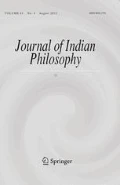Abstract
According to their standardized treatment within the Indian legal tradition (Dharmaśāstra), ordeals (Sanskrit: divya) are supposed to occur, under certain circumstances, when one person formally accused another of some crime in a court of law. While not disputing the general accuracy of this standardized treatment of ordeals, this article argues for the widespread practice in pre-modern India of another—hitherto unrecognized—type of ordeal that fails to fit this basic scenario, for such ordeals would occur when someone was widely believed to have committed some wrongdoing, but was not forced to stand trial in a formal judicial court. In order to prove his innocence and, thereby, mitigate the damage caused by his suspected guilt, such an individual could—and sometimes did—arrange for himself to undergo an ordeal at his own expense and independently of any formal plaint. After establishing the practice of ordeals of this sort in pre-modern India, this article then examines some possible explanations for their development.
Similar content being viewed by others
References
Aiyangar, K. V. R. (ed.). (1953). Kṛtyakalpataru: Vol. 12: Vyavahārakāṇḍa. Gaekwad’s oriental series. Baroda: Oriental Institute.
Kane P.V. (1968–1975). History of Dharmaśāstra (5 Vols.). Poona: Bhandarkar Oriental Research Institute.
Lariviere, R. (ed. and trans.) (1981). The Divyatattva of Raghunandana Bhaṭṭācārya: Ordeals in classical Hindu law. New Delhi: Manohar Publications.
Menon, K. P. P. (1982). History of Kerala: A history of Kerala written in the form of notes on Visscher’s letters from Malabar, (Vol. 2). New Delhi: Asian Educational Services (reprint 1924).
Olivelle, P. (ed. and trans.) (2005). Manu’s code of law: A critical edition and translation of the Mānava-Dharmaśāstra. New York: Oxford University Press.
Ram Acharya, N. (ed.). (1949). Yājnavalkyasmṛti of Yogīśvara Yājnavalkya with the commentary Mitākṣarā of Vijñāneśvara, notes, varient readings, etc. Bombay: Nirnay Sagar Press.
Rocher, L. (ed. and trans.) (1956). Vyavahāracintāmaṇi: A digest on Hindu legal procedure. Gentse Orientalishe Bijdragen (Vol. 1). Gent: National Foundation for Scientific Research.
Srinivasacharya, L. (ed.). (1914). Smritichandrika by Devana-Bhatta, (Vol. 3, pt. 1). Bibliotheca Sanskrita No. 45. Mysore: Government Branch Press.
Upadhyaya D.S. (1967) The concept of ‘Divya’ in Bhojapurī Folklore. Journal of the Bihar Research Society 53: 264–269
Vaidya, P.L. (eds) (1971) The Vālkīmi-Rāmāyaṇa, Vol. 6, Yuddhakāṇḍa. Baroda, The Oriental Institute
Yelle R.A. (2002) Poetic justice: Rhetoric in Hindu ordeals and legal formulas. Religion 32: 259–272
Author information
Authors and Affiliations
Corresponding author
Rights and permissions
About this article
Cite this article
Brick, D. The Court of Public Opinion and the Practice of Restorative Ordeals in Pre-Modern India. J Indian Philos 38, 25–38 (2010). https://doi.org/10.1007/s10781-009-9082-z
Published:
Issue Date:
DOI: https://doi.org/10.1007/s10781-009-9082-z




